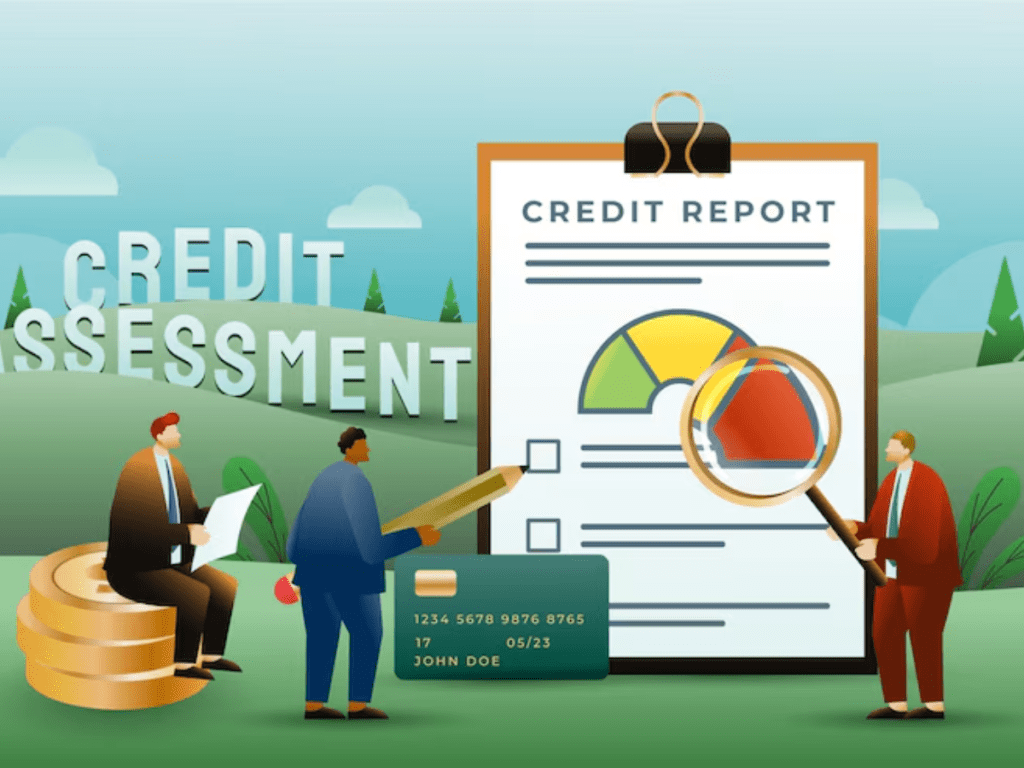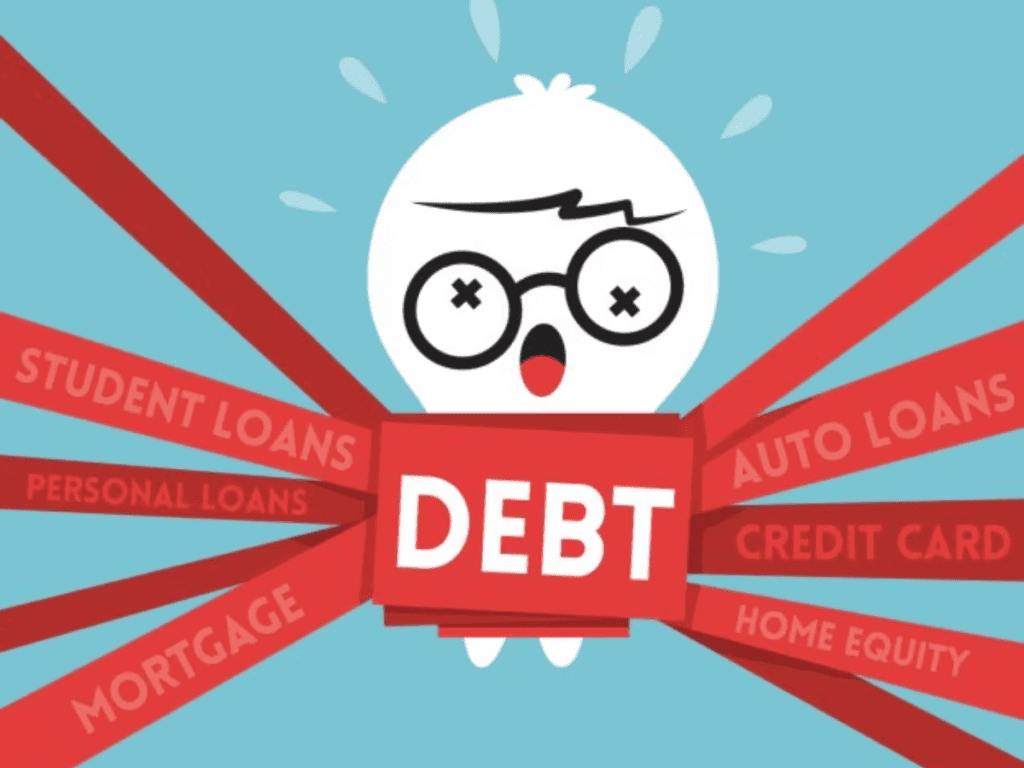Introduction
Borrowing a loan is a popular financial move for individuals and companies to finance significant purchases, like purchasing a house, beginning a business, or financing education. In exchange, the borrower promises to repay the lender over time with interest. Although this deal can be helpful in the short run, it is crucial to know the responsibilities involved in borrowing money. Defaulting on a loan is when a borrower does not make the payments as agreed upon in the loan contract. This can be due to a variety of reasons, such as financial difficulties, loss of employment, or bad management of finances. Whatever the reason, the effects of defaulting on a loan are usually drastic and can affect a borrower’s finances for decades. Knowing what happens if you default on a loan is important not only for how to avoid it but also for how to recover if it occurs. This article explores the different consequences of loan default, how to cope with the aftermath, and ways to bounce back from financial stress.
What Does Loan Default Mean?
A loan default occurs when a borrower fails to repay the debt as agreed in the loan agreement.
It can happen with any type of loan, such as a personal loan, auto loan, student loan, or mortgage. Loan default does not happen immediately after missing one or two payments; usually, lenders give borrowers a grace period and time to catch up. But if the borrower continuously defaults on payments for a long time, generally after 90 days, then the loan is said to be in default. The default terms for missing a loan repayment can differ based on the kind of loan, the lender, and the area where you reside.
For example, in the case of federal student loans in the United States, a loan could be in default after 270 days of payments being missed. The specific time frame for other types of loans, like mortgages or automobile loans, can vary. But the one thing they have in common is that the borrower has defaulted on the terms of the contract, and that can have a snowball effect of unpleasant financial ramifications.
What Happens When You Default on a Loan?
The impact of loan default can be severe and long-lasting. Once a loan is in default, the lender can pursue various actions to recover the debt. Here’s a breakdown of the consequences that typically follow default:
Damage to Your Credit Score
One of the most direct effects of loan default is the harm that it can do to your credit score. Your credit score is a number that reflects your creditworthiness, and it is an important factor in whether you will qualify for new loans, credit cards, or even leasing a home. Payment history constitutes a large part of your credit score, and a defaulted loan can lower your score significantly.
A low credit score may result in paying higher interest rates on future loans, limited access to credit, and even trouble getting housing or employment in extreme situations. In the long run, it may take years of regular, on-time payments to restore your credit score once a loan is defaulted. The loss to your credit score is among the worst effects of defaulting on a loan and may impact numerous aspects of your financial situation.
Collection Actions and Higher Debt
After a loan defaults, the lender can escalate the collection action. This is often done by assigning the account to a collections agency that will try to collect on the debt. Collections agencies are best known for being obnoxious and can pester you with several calls per day via telephone, email, and mail.
Besides the continuous harassment by collection agencies, the balance of the unpaid loan can actually grow. This is so since collection companies usually charge fees, interest, and charges on the initial amount due. All these additional fees can further complicate paying back your debt, extending the financial hardship.
Legal Consequences and Wage Garnishment
If the lender or collection agency is unable to collect the debt, they may take legal action against you.
This could result in a court judgment, which gives the lender the legal right to garnish your wages or bank accounts in order to recover the money owed. Wage garnishment involves a portion of your earnings being withheld directly from your paycheck by your employer and sent to the lender. This can make it very hard to pay for your other living costs, like rent, utilities, or food. Besides wage garnishment, legal action may result in the confiscation of assets, particularly if the loan is secured. For instance, a mortgage lender may institute foreclosure proceedings, which may result in the loss of your home. Likewise, a car loan default may result in the repossession of your vehicle. The legal consequences of defaulting on a loan can be harsh and can also impede your ability to start anew in your financial life.
Loss of Collateral: Repossession or Foreclosure
Perhaps the greatest danger of defaulting on a secured loan is losing the collateral you used when you borrowed the money.
A secured loan is a loan in which you pledge an asset, like a car, home, or savings account, as collateral. If you do not repay the loan, the lender is legally entitled to take the collateral and sell it in order to recover the debt. For example, in a mortgage loan case, if you fail to pay your home loan, the lender can start foreclosure proceedings. It means the lender takes over possession of the house, evicts you, and sells the property to recover the loan amount. Likewise, in case of failure to pay a car loan, the lender can repossess the car and sell it to recover the funds.
The loss of a property such as a house or vehicle can have ruinous effects on your life and finances. Not only will you lose the property, but you will also experience a severe blow to your credit rating and your ability to secure future credit.
Inability to Get Future Credit
Defaulting on a loan impacts your ability to get credit in the future for the long term. Typically, lenders perceive individuals who defaulted on loans as being high-risk borrowers. Therefore, it is extremely difficult to obtain new loans or credit cards. Even when approved for new credit, you may end up with higher interest rates, and therefore, borrowing more costly in the future.
In other instances, you can be outright denied credit based on your defaulted loans. This may limit your ability to make big purchases, such as the purchase of a house or automobile, or even getting a rental property. The monetary effects of loan default reach well beyond the initial default and may influence your capability to proceed with your financial plans.
How to Recover from Loan Default
While defaulting on a loan has serious repercussions, it is possible to bounce back from this financial loss. The journey to recovery might be arduous and long, but with the correct measures, you can restore your financial well-being and take charge of your life. Some ways to recover from loan default are:
1. Evaluate Your Financial Condition
The first thing you can do when recovering from loan default is take an account of your finances. This entails going through all of your bills, income, and expenses. Get a record of what you owe, such as missed payments, late charges, or additional fees. You need to have a clear picture of where you are financially to devise a way to go on.
Also, evaluate your budget and income to determine if there are some places that you can cut spending or save more. It is imperative to know your finances well in order to proceed with the next steps of your recovery process.
2. Communicate with Your Lender
If you are in default or on the verge of defaulting, the best thing you can do is talk to your lender. Most lenders want to work with borrowers who are experiencing financial distress, particularly if you are open and honest about the situation.
There are various alternatives your lender can extend to you so that you avoid causing further damage, including loan adjustments, forbearance, or a renewed payment plan. The lender in some instances will give you leeway to defer payment for some time, elongate the period of repayment, or lower the interest rate so that the loan is easier to manage. In case you are not in a position to pay the entire amount, inquire about whether there is an alternative plan that could be more affordable for you.
3. Consider Debt Consolidation or Refinancing
If you owe several debts, debt consolidation could be an option. Debt consolidation is where you roll all your current debts into one loan with a single monthly payment. This can make it easier to pay off your debts and possibly reduce your rate of interest, as you only make one payment each month.
Similarly, refinancing can help lower your interest rates and extend the repayment period. This can reduce your monthly payments, making them more manageable. Refinancing is often available for mortgages, car loans, and student loans.
4. Rebuild Your Credit
Once you have addressed the immediate financial concerns, the next thing to do is to concentrate on restoring your credit. Even though your credit score will be affected by a loan default, there are techniques you can apply to restore it over time.
Begin by paying all your bills in a timely manner, since payment history is the biggest determinant of your credit score. You can also use a secured credit card, which needs a deposit but enables you to establish good credit history provided you use it wisely.
Also, monitor your credit report to make sure there are not any errors or inaccuracies. If you do spot any discrepancies, dispute them with the credit bureaus so they can be corrected.

